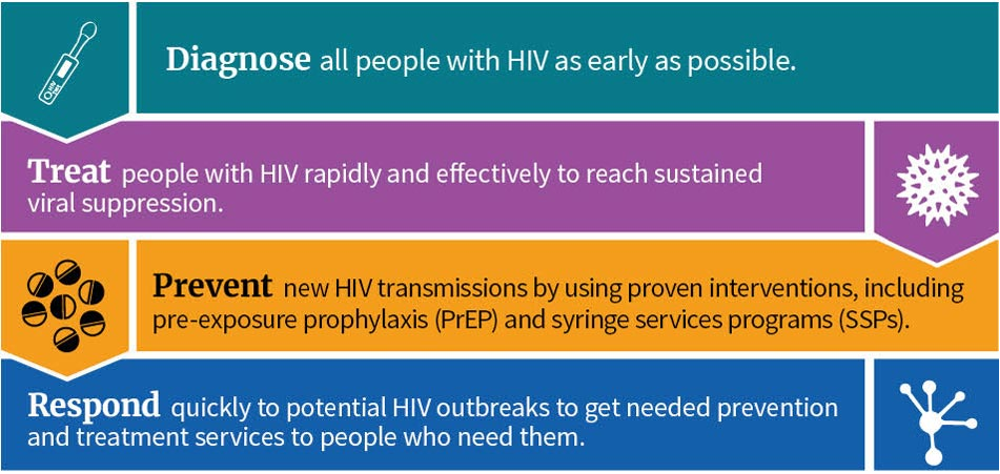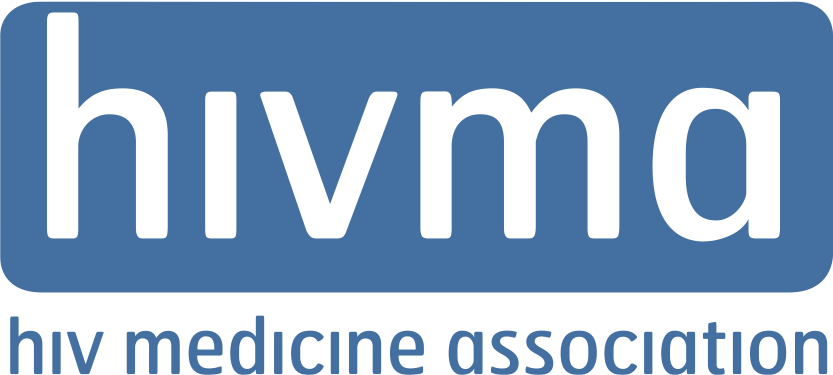
Since 2019, federal agencies and local communities have taken action as part of the Ending the HIV Epidemic initiative. The EHE initiative aims to scale up prevention and treatment strategies to reduce new HIV cases by 75% by 2025 and 90% before 2030 for an estimated 250,000 total HIV diagnoses averted. The initiative targets 48 counties; Washington, D.C.; and Puerto Rico, which make up half of new HIV cases, as well as seven states with significant rural HIV incidence. The jurisdictions were identified using 2016 to 2017 data.
To not lose ground, the EHE initiative requires sustained federal resources for HIV prevention programs, engaging with the HIV community in a meaningful way, strengthening access to health care, protecting Medicaid from cuts, ensuring a robust clinical workforce and addressing stigma, discrimination and other social determinants of health.
This webpage highlights resources to learn more about the EHE initiative and its early impact as well as HIVMA advocacy to advance and strengthen the initiative and information regarding how HIV clinicians and researchers can get involved.
National HIV/AIDS Strategy for the United States (2022 to 2025)
This strategy provides a roadmap for ending the HIV epidemic across the United States.
National HIV/AIDS Strategy Federal Implementation Plan
In August 2022, the White House Office of National AIDS Policy released an implementation plan outlining federal agencies’ specific commitments to meet the strategy’s goals in FY 2022-2025.
National HIV/AIDS Strategy 2023 Interim Action Report
In December 2023, the White House released an interim action report detailing the implementation of the National HIV/AIDS Strategy and progress towards meeting the strategy’s goals.
Early Impacts of the Ending the HIV Epidemic Initiative
America’s HIV Epidemic Analysis Dashboard
This data visualization tool displays data on the six indicators for each of the Phase I EHE jurisdictions. Data can be filtered by jurisdiction, race, sex, gender and age.
HRSA HIV/AIDS Bureau Ending the HIV Epidemic in the U.S. Initiative Year Two Data: 2021
This document highlights EHE client and workforce data from the first two years of the initiative.
HRSA HIV/AIDS Bureau Ending the HIV Epidemic in the U.S. Initiative Qualitative Summary of Progress: March 2021-February 2022
This document outlines the services implemented by the initiative within the EHE jurisdictions and describes the impact of these programs on meeting the EHE goals.
Ending HIV: Zero Out the Epidemic, Not the Budget
Funders Concerned About AIDS created this resource, which highlights the impacts of EHE-funded programs and highlights the risks of cutting funding for the initiative.
Ending the HIV Epidemic in the U.S.: Accomplishments
This CDC factsheet details progress toward meeting goals to diagnose, treat, prevent and respond to HIV through EHE-funded programs.
HIVMA Advocacy
Congress Must Sustain HIV Research and Prevention Funding (7/28/2023)
HIVMA is encouraged by the Senate FY 2024 Labor, Health and Human Services funding bill advanced by the Appropriations Committee, which sustains critical investments in the Ryan White HIV/AIDS Program, the Ending the HIV Epidemic in the U.S. initiative and CDC’s efforts to establish the foundation for a National PrEP Program.
House LHHS Appropriations Bill Harmful to the HIV Response (7/18/2023)
HIVMA is deeply concerned by the impact the Labor, Health and Human Services, and Education appropriations bill would have on our ability to respond to the HIV epidemic and other infectious diseases in the U.S.
HIVMA Applauds Federal Implementation Plan to End HIV Epidemic, Calls for Workforce Summit and Appropriate Congressional Funding (8/31/2022)
HIVMA welcomes the release of the comprehensive National HIV/AIDS Strategy Federal Implementation Plan that provides an important roadmap for reducing new HIV infections by 90% by 2030.
HIV Providers Call for Policy Reforms to End HIV as an Epidemic (8/15/2022)
In a policy paper published in Clinical Infectious Diseases, IDSA and HIVMA say that while barriers to ending the HIV epidemic are significant, the goal could be within reach with broad-based policy reforms at the federal, state and local levels.
President Prioritizes Funding to End the HIV Epidemic in the U.S. FY 2023 Budget Plan (3/30/2022)
In his budget plan for fiscal year 2023, President Joe Biden calls for important investments to grow the Ending the HIV Epidemic initiative and to create a national PrEP program that will dramatically increase access to PrEP and reach many more of the 1.2 million people who could benefit from it.
President Proposes Investments in Public Health and in Ending the HIV Epidemic in First Budget Request (6/3/2021)
President Biden’s budget request for FY 2022 signals a commitment to global leadership, public health and biomedical research.
Get Involved
Member Advocacy Program
Join the Member Advocacy Program to advocate with your colleagues, with support from IDSA and HIVMA, on issues that impact the infectious diseases and HIV landscape. MAP members engage with key stakeholders on the Hill and directly contribute to IDSA’s and HIVMA’s influence over important pieces of legislation, including funding the Ending the HIV Epidemic initiative.
IDSA/HIVMA Action Center
Use the IDSA/HIVMA Action Center to write to your congressional representatives to urge them to pass legislation that ensures funding increases for ID and HIV programs and to ensure new funding is available for the Ending the HIV Epidemic initiative.

